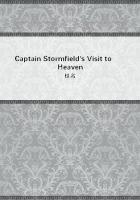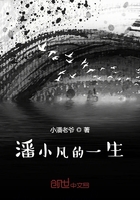FROM MARCELLUS COCKEREL, IN WASHINGTON, TO MRS.COOLER, NEECOCKEREL, AT OAKLAND, CALIFORNIA.
October 25.
I ought to have written to you long before this, for I have had your last excellent letter for four months in my hands.The first half of that time I was still in Europe; the last I have spent on my native soil.I think, therefore, my silence is owing to the fact that over there I was too miserable to write, and that here I have been too happy.I got back the 1st of September--you will have seen it in the papers.Delightful country, where one sees everything in the papers--the big, familiar, vulgar, good-natured, delightful papers, none of which has any reputation to keep up for anything but getting the news! I really think that has had as much to do as anything else with my satisfaction at getting home--the difference in what they call the "tone of the press." In Europe it's too dreary--the sapience, the solemnity, the false respectability, the verbosity, the long disquisitions on superannuated subjects.Here the newspapers are like the railroad trains, which carry everything that comes to the station, and have only the religion of punctuality.As a woman, however, you probably detest them; you think they are (the great word) vulgar.I admitted it just now, and I am very happy to have an early opportunity to announce to you that that idea has quite ceased to have any terrors for me.There are some conceptions to which the female mind can never rise.Vulgarity is a stupid, superficial, question-begging accusation, which has become today the easiest refuge of mediocrity.Better than anything else, it saves people the trouble of thinking, and anything which does that, succeeds.You must know that in these last three years in Europe I have become terribly vulgar myself; that's one service my travels have rendered me.By three years in Europe I mean three years in foreign parts altogether, for I spent several months of that time in Japan, India, and the rest of the East.Do you remember when you bade me good-bye in San Francisco, the night before I embarked for Yokohama? You foretold that I should take such a fancy to foreign life that America would never see me more, and that if YOU should wish to see me (an event you were good enough to regard as possible), you would have to make a rendezvous in Paris or in Rome.I think we made one (which you never kept), but I shall never make another for those cities.It was in Paris, however, that I got your letter; I remember the moment as well as if it were (to my honour) much more recent.You must know that, among many places I dislike, Paris carries the palm.I am bored to death there; it's the home of every humbug.The life is full of that false comfort which is worse than discomfort, and the small, fat, irritable people, give me the shivers.I had been ****** these reflections even more devoutly than usual one very tiresome evening toward the beginning of last summer, when, as I re-entered my hotel at ten o'clock, the little reptile of a portress handed me your gracious lines.I was in a villainous humour.I had been having an over-dressed dinner in a stuffy restaurant, and had gone from there to a suffocating theatre, where, by way of amusement, I saw a play in which blood and lies were the least of the horrors.The theatres over there are insupportable; the atmosphere is pestilential.
People sit with their elbows in your sides; they squeeze past you every half-hour.It was one of my bad moments; I have a great many in Europe.The conventional perfunctory play, all in falsetto, which I seemed to have seen a thousand times; the horrible faces of the people; the pushing, bullying ouvreuse, with her false politeness, and her real rapacity, drove me out of the place at the end of an hour; and, as it was too early to go home, I sat down before a cafe on the Boulevard, where they served me a glass of sour, watery beer.There on the Boulevard, in the summer night, life itself was even uglier than the play, and it wouldn't do for me to tell you what I saw.Besides, I was sick of the Boulevard, with its eternal grimace, and the deadly sameness of the article de Paris, which pretends to be so various--the shop-windows a wilderness of rubbish, and the passers-by a procession of manikins.















